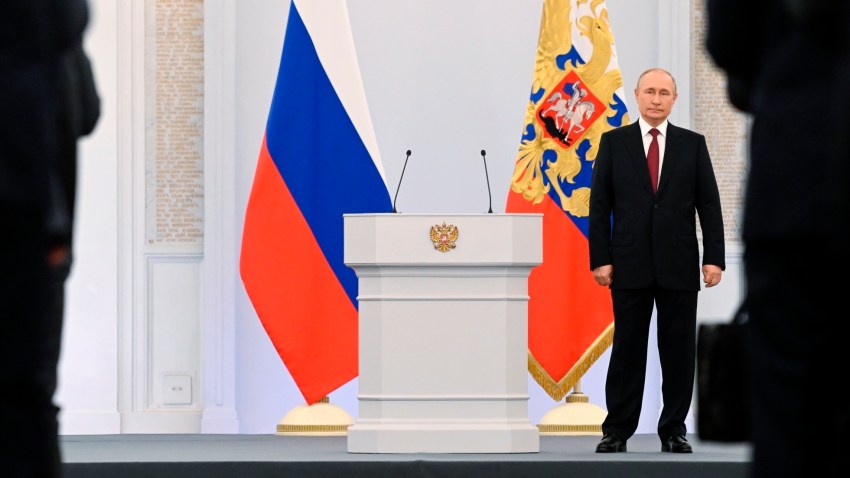Russia occupies an unusual position on the world stage. Under President Vladimir Putin, Moscow has repeatedly demonstrated that it has the capacity to destabilize the international order, most recently with its brutal invasion of Ukraine. But for all its ability to upend power dynamics in places like the Middle East, Europe and Africa, Moscow has so far not demonstrated the capacity to fill the vacuums it exploits—or creates. That is most visibly on display in Ukraine, where the Russian military has struggled to achieve its war aims, while imposing punishing costs on the country’s civilian population, including alleged war crimes.
But while Russia may lack the military strength to challenge U.S. supremacy in Europe, let alone globally, it has begun to seize the initiative against the overstretched Ukrainian military. And no one—particularly not the NATO alliance—is ignoring its nuclear capabilities, as evidenced by the alliance’s refusal to intervene directly in the war in Ukraine. Moscow also uses arms sales and military engagements to build ties to countries in Asia, Africa, Latin America and especially the Middle East. And until Europe dramatically reduced its dependence on Russian energy supplies, its massive exports of fossil fuels to Europe offered Moscow additional leverage.
Even as Moscow maintains an outsized influence on the global stage, Putin has had some setbacks on the home front. Though he has dominated the Russian political scene for more than two decades, his popularity had waned amid a slowing economy even before the war in Ukraine, particularly following a deeply unpopular pension reform effort in 2018. Last year’s short-lived rebellion by Yevgeny Prigozhin and his Wagner Group—a private military company that has been a useful asset for the Kremlin in the Middle East, Africa and Ukraine—raised questions about the stability of Putin’s regime and demonstrated how the warring factions within it could lead to chaos once Putin eventually leaves office. But the aftermath of the mutiny, including Prigozhin’s untimely death in an airplane accident, has demonstrated that Putin’s grip on power remains solid. And he recently secured yet another mandate as president in what most observers considered a sham election, after having engineered a way to flout a constitutional term limit.
U.S. President Joe Biden took office eager to demonstrate a tougher line on Russia than that of his predecessor, Donald Trump, announcing sanctions in response to Russia’s cyber behavior in the early months of his administration. But Biden also renewed the New START bilateral nuclear arms control treaty, and his decision to hold a summit with Putin in June 2021 was seen as a further signal of his willingness to work constructively with Russia, particularly on issues like cyber crime. Since then, however, Russia’s all-out invasion of Ukraine has made it clear that Putin sees no benefits in putting relations on a solid and stable footing. The sanctions the U.S. and the European Union imposed in response have now added to Putin’s domestic challenges.
WPR has covered Russia’s role in global politics in detail and continues to examine key questions about future developments. Will Russia’s economy continue to survive on a war footing? Will Russia’s strategic partnership with China continue to deepen? And will Putin be able to maintain his grip on power should his military adventurism in Ukraine backfire? Below are some of the highlights of WPR’s coverage of Russia.
Our Most Recent Coverage
Russia’s Naval Drills in the Caribbean Are a Nuisance, not a Threat
Russia’s military exercises in the Caribbean, alongside Cuba and Venezuela, coincide with two overlapping challenges in the region. But they are no reason to panic.
Editor’s note: This article was originally published in May 2019 and is regularly updated.

